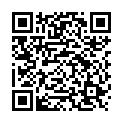|
|
|
| Module code: MFSTM-W-21 |
|
4V (4 hours per week) |
|
6 |
| Semester: 2 |
| Mandatory course: no |
Language of instruction:
German |
Assessment:
Project work (Can be repeated annually)
[updated 20.01.2020]
|
MFSTM-W-21 Leisure, Sports, Tourism Management, Master, ASPO 01.04.2017
, semester 2, optional course, general subject
|
60 class hours (= 45 clock hours) over a 15-week period.
The total student study time is 180 hours (equivalent to 6 ECTS credits).
There are therefore 135 hours available for class preparation and follow-up work and exam preparation.
|
Recommended prerequisites (modules):
MFSTM-110 Leisure, Sport and Tourism Studies
MFSTM-120 Stakeholders in the Leisure, Sport and Tourism Sectors
MFSTM-130 Project and Process Management
MFSTM-140 Intercultural and Sociocultural Competence
MFSTM-150 Empirical Methods in Social Science Research
[updated 23.01.2014]
|
Recommended as prerequisite for:
|
Module coordinator:
Prof. Dr. Petra Garnjost |
Lecturer:
Dozierende des Studiengangs
[updated 23.01.2014]
|
Learning outcomes:
After successfully completing this module, students will:
_ understand the basic terms and concepts of entrepreneurial thinking and actions.
_ be familiar with the success factors of start-ups in tourism.
_ have a basic understanding of the structure of a business plan.
_ be able to use creativity techniques to develop start-up ideas in tourism.
_ be familiar with the steps necessary to progress from an initial business idea to a start-up concept.
_ be able to develop a start-up idea from the idea to a concept and use self-organizing methods for this purpose.
_ be able to present their business concept in a business plan using oral presentation techniques.
[updated 20.01.2020]
|
Module content:
_ Entrepreneurial thinking and action
_ Successful tourism start-ups
_ Franchise concepts in tourism
_ Using creativity techniques to generate start-up ideas
_ Structure of a business plan
_ Evaluating business plans
_ Creating a business plan
[updated 20.01.2020]
|
Teaching methods/Media:
_ Seminaristic lecture course
_ Case studies (where appropriate, study trips)
_ Group work
_ Structured discussions with fellow students and third parties
_ Project work
_ (developing a business idea, as well as a business plan)
[updated 20.01.2020]
|
Recommended or required reading:
_ Depends on the respective topic
_ Current literature lists will be made available to students at the beginning of the semester (exemplary references):
- Ateljevic, J.; Page, S.J.(edt.): Tourism and Entrepreneurship: International Perspectives, Advances in Tourism Research, 2009.
- Lee-Ross, D.; Lashley, C.: Entrepreneurship and Small Business Management in the Hospitality Industry, Butterworth-Heinemann, 2009.
- Siller von Linde, H.: Entrepreneurship und Tourismus: Unternehmerisches Denken und Erfolgskonzepte aus der Praxis, 2010
- Kussmaul, Business-Plan
- McKinsey & Company: Planen, gründen, wachsen: Mit dem professionellen Businessplan zum Erfolg, 2010.
- Oehlrich, M: Betriebswirtschaftslehre: Eine Einführung am Business-Plan, 2010.
_ Current articles in English-language business magazines such as the Harvard Business Review
[updated 20.01.2020]
|


